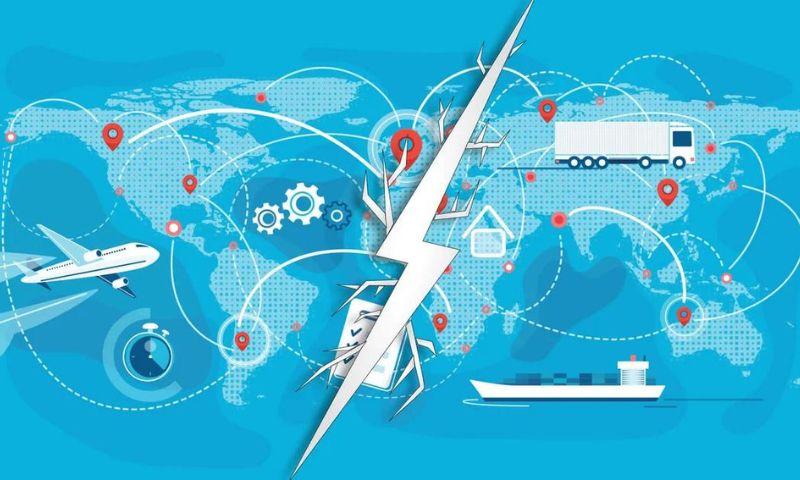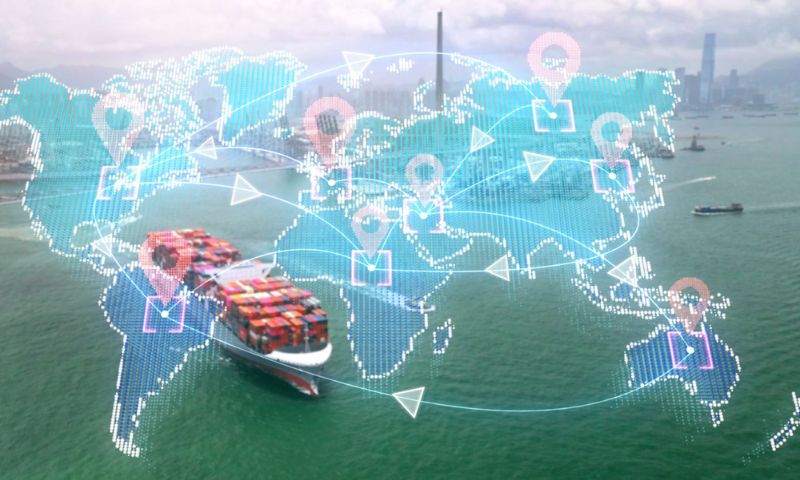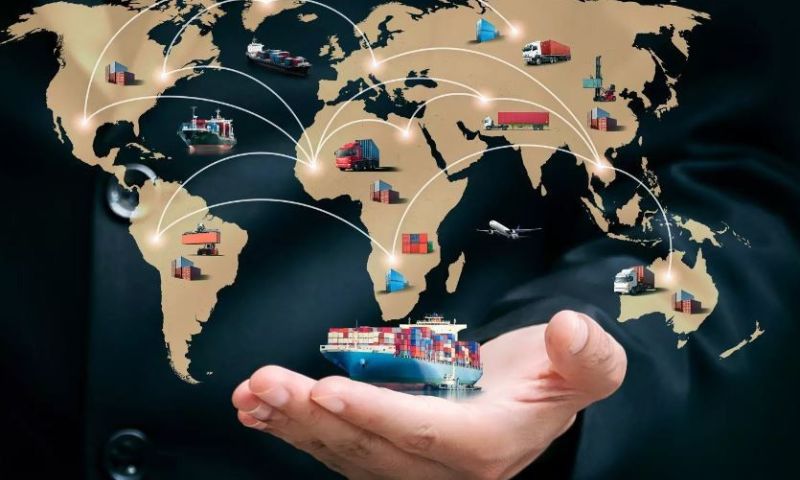In today’s tightrope walk of global trade, Supply Chain Disruptions Due to Geopolitics have become a regular headache. As someone who has been in the thick of streamlining supply chains, I’ve seen firsthand how trade wars, sanctions, and diplomatic spats can lead to big trouble for businesses. Just when you think your supply chain is robust, geopolitical tensions can throw a wrench in the works. This guide is your map through the chaos. I’ll take you through why international dramas can mess up your flow of goods and show you smart moves to keep your supplies coming, no matter what’s on the news. Let’s dive into how to handle this geopolitical quagmire with your business in one piece.
Understanding Geopolitical Tensions and Their Impact on Global Supply Chains
The Role of International Relations in Supply Chain Disruptions
When countries don’t get along, it can hurt how goods flow around the world. It’s like if your friends start to argue, passing a basketball between you becomes hard. This happens in business, too. Countries argue, and this makes it hard for stuff to move from one place to another. Big problems can happen when goods get stuck because two countries are not in a good place.
At times, a country may face trouble for not following international rules. When this happens, other countries may stop trading with them. This is called an economic sanction. When a country is hit by sanctions, others may not be able to buy or sell stuff to them. This forces companies to look for new partners. They have to plan better and find new ways to keep their goods moving.
Another thing that can cause trouble is trade barriers. Think of trade barriers like a big wall that makes it hard for trucks to get through. If it’s too tough to cross over, some trucks might choose a different road, or they might not come at all. These barriers can mean extra money paid and long wait times. They shape how we buy and sell things across the world.
How Economic Sanctions and Trade Barriers Shape Supply Dynamics
When sanctions hit a country, it can shake up the way we get things. This includes parts we need for making stuff or even the food that goes to our market. We call this supply dynamics. It’s how things get to us, and it’s always changing.
Economic sanctions can stop materials from reaching factories. They can make it hard for shops to have what you like to buy. Because of this, companies have to think of new ways to work. They might need to find other places to get their stuff or make different things that don’t need parts from far away.
Trade barriers can change costs and time. A company might have to pay more money because of new taxes on what they bring in from other countries. They might also have to wait longer to get things they need. This leads to higher prices for you and for me when we shop.
By knowing these problems, companies can get ready and become stronger. They aim to keep their supply chains moving fast and without trouble, even when countries have disagreements. They look for suppliers from many different places. This helps so that if one road gets blocked, they have others they can use. Building strong plans helps companies stay on their feet even when the world changes around them.
Navigating through these challenges is tricky. But it’s important, so we all get what we need every day. We depend on companies to be smart and quick in solving these puzzles. This way, even if countries face off, we can still find our favorite snacks on the store shelves. Managing risks in the supply chain has become super important in our fast-moving world. And it takes smart people working together to keep it smooth. Keeping an eye on global events is key to help companies adjust and keep going, no matter what.

Risk Management Strategies for Geopolitically Affected Supply Chains
Developing Resilience Through Diversification and Strategic Stockpiling
In today’s world, changes in politics shake our supply chains. Countries fight, set up trade walls, and this hurts how goods move around the globe. It’s tricky to steer through these issues but we can do it. We must spread out where we get our goods from. This is called diversification. It means not relying on just one place. If one path blocks, we have others to get our goods.
Diversification helps us stay strong when troubles hit. We get parts from different countries. If one country has problems, the other sources can keep us going. We also can keep extra items in store. That’s strategic stockpiling. This way, if things stop moving, we still have what we need.
Implementing Crisis Management Protocols for Supply Disruptions
When a supply chain breaks, it’s key to have plans ready. We call these crisis management protocols. They are steps we take right away to fix things. We keep close watch on news that may affect our goods moving. We talk to all the people involved—like shippers and makers—to figure out the best steps.
If a crisis comes, we act fast. We switch to our backup plans. This might mean using different paths to move goods or finding new people to give us what we need. Doing all this helps us get through tough times without big losses.
In short, by spreading out sources and keeping extras, we can tackle the choppy seas of global politics. And when storms hit, our ready plans help us fix our supply chains quick. This keeps our goods—and our promises to customers—on track.
Navigating Global Trade During Times of Geopolitical Uncertainty
The Influence of Geopolitical Events on Logistics and Cross-Border Challenges
Global events can turn supply chains upside down. Think about a game of Jenga. Each block is a part of a supply chain. When a crisis hits, it’s like removing one block too many. The tower might stay up, but it’s shaky. That’s our supply chain during tough times.
Countries sometimes don’t get along. When they argue, goods can’t cross borders easily. Trucks wait, ships dock, and factories slow down. It’s tough for everyone. This is geopolitics causing delivery delays. It impacts how fast we get things and shakes up logistics. Companies must plan for these storms. Otherwise, they can lose money and trust.
To stay strong, companies look at the whole world. They find new ways when old ones close. For example, if a trade war starts, they change where they get parts from. This is trade wars and sourcing. If one country has an embargo, companies find other places to buy from. That means they can still make and sell things.
Keeping goods moving needs smart thinking. It’s looking at maps, laws, and news. It’s guessing what could happen next. Firms that do this well can face less trouble. They work around problems in clever ways. This is risk management in geopolitically affected supply chains.
Adapting to International Trade Policy Changes and Their Supply Chain Implications
Laws about trading between countries keep changing. They’re like rules in a game. Sometimes, new ones come out of nowhere. It’s tough to keep up. This is international trade policy implications. When they change, companies must change, too. They have to be quick and wise.
Imagine you have a big test at school. But the night before, the teacher says it’s on a different subject. You’d have to study fast! That’s how companies feel. When they hear of new laws, they rush to adapt. This is navigating geopolitical risks in supply chain.
Some strategies can help. It’s like having a good study guide. You keep extra stuff in case you need it. This is strategic stockpiling and geopolitics. You also work with many friends on projects, so if one is sick, you still finish the project. This is the idea behind diversifying suppliers for risk mitigation.
It’s all about being ready for changes. Smart companies watch the news and talk to experts. They make plans for what they might do if things change. They play out different stories in their minds. It’s like practicing a play before opening night. When the real show starts, they’re ready for whatever happens. That’s crisis management for supply disruptions.
In the end, it’s about staying ahead and not getting stuck. It’s hard work but super important. That way, companies can keep promises to customers. And customers, well, they get what they need, when they need it. That’s how you win in this big, tricky game of global trade.

Building a Robust Supply Chain in the Face of Political and Economic Instability
Cybersecurity Measures for Protecting Geopolitically Sensitive Supply Networks
In today’s world, a safe supply chain is key. Countries sometimes don’t get along, and this can lead to big problems—like hacking into each other’s systems. Say, you’re a big company that sends stuff all over the world. One day, political drama kicks off and hackers try to sneak into your network. Scary, right?
To stop this, you need tough cybersecurity. First off, have strong passwords. Next, teach your team about risks and what a scam looks like. Have pros check your system for weak spots. And have a solid plan if things go south. It’s like locking your doors at night but for your company’s computers and data.
Sustainable Sourcing and Compliance Strategies Amidst Geopolitical Turmoil
When countries fight or set up rules to guard their goods, getting parts and materials gets hard. If one place you buy from is in trouble, what do you do? You find different places to shop. This is called diversifying. You don’t just rely on one spot. That way, if one country has issues, it won’t ruin your business.
Another key step is to play by the rules, especially with sanctions. Sanctions are like a time-out but for countries. When these are in place, you gotta make sure you’re not breaking any laws when you do business. It can be tough but staying on top of these rules keeps you out of trouble.
Then, you’ve got to think green. Using stuff that’s good for the planet can also make your supply chain stronger. It shows you care and can even save you money in the long run. Plus, it could keep you safe from new rules that look to protect the Earth.
No one knows what will happen next in the world. But by being smart about how you get and guard the things you need, you might just weather any storm.
In this post, we looked at how global politics jumble up supply chains. We saw that international fights lead to trade messes. Countries sling sanctions and trade rules, which twist the flow of goods. In tough times, smart moves help. You can spread your bets across suppliers and save key supplies to cushion shocks. When crisis hits, you need a plan to keep things moving.
We also dived into playing the trade game when world relations sour. It’s tricky. Geopolitical events can tangle up shipping and trade paths. Being swift to adapt to new trade laws matters a lot.
Lastly, no chain is strong if it’s not safe. You must guard your supplies from cyber threats. Sticking to green and fair sources is key when political and cash storms hit.
For sure, it’s hard to steer your supply through choppy geopolitical seas. But with smart planning, you can keep your goods and materials flowing, no matter the global drama. Let’s build supply chains that can weather any storm. It’s tough, but doable. Let’s get to work.
Q&A :
How do geopolitics influence supply chain disruptions?
Geopolitical events can have a significant impact on global supply chains. These events might include conflicts, trade disputes, sanctions, or political instability that can result in delays, increased costs, and scarcity of products. Companies need to monitor these factors closely to anticipate and mitigate potential disruptions.
What strategies can businesses employ to manage supply chain disruptions caused by geopolitics?
Businesses can adopt various strategies to manage the impact of geopolitics on their supply chains. Some of these strategies include diversifying suppliers, increasing inventory levels, rethinking logistics and distribution networks, and investing in supply chain visibility tools that help in anticipating and responding quickly to any changes.
Are there certain industries more affected by geopolitical supply chain disruptions?
Certain industries that rely on specific regions for materials or manufacturing are more vulnerable to geopolitical disruptions. Industries such as automotive, electronics, and pharmaceuticals often face significant challenges because of their complex and global supply chains that can be susceptible to political tensions and trade barriers.
How can companies forecast and prepare for geopolitical risks that may affect their supply chains?
Companies can prepare for geopolitical risks by incorporating risk assessment into their supply chain planning. This can involve conducting regular analysis of geopolitical landscapes, leveraging data analytics for predictive insights, developing contingency plans, and engaging in political risk insurance to safeguard against unforeseen disruptions.
What role do governmental policies play in supply chain disruptions related to geopolitics?
Governmental policies, including tariffs, trade agreements, and sanctions, play a significant role in shaping the operating environment for global supply chains. Changes in these policies can directly affect the cost, availability, and movement of goods across borders, prompting companies to adapt their supply chain strategies accordingly.




